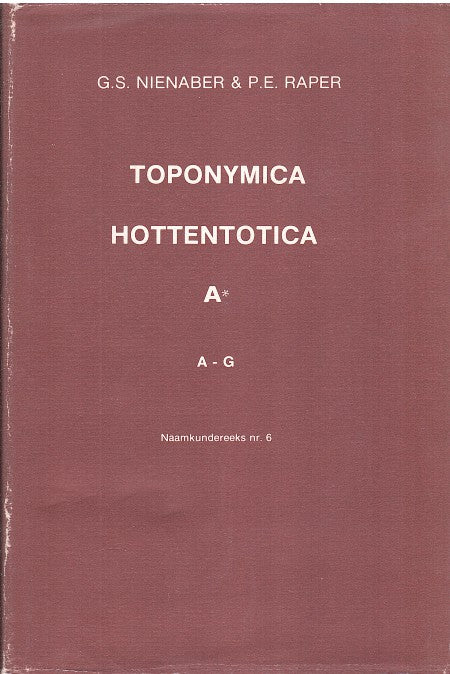eng
There must be strictly distinguished between this Aris and the ǀ Haris to the west. In the old records we have and who relate to this place with certainty, also lacks in the old missionaries, a suction consonant. Therefore, our statements were found that goes out of an ╪aris = whisk, an ╪aris = sheep, cattle, human tail, and aǃ Aris = 'tree, perhaps' (Nama-Joujong Abraham). Pattern is the nomination to an edible field food, a root. Many farm names come from a root, so farm root no 54, 49 km south of Aris, and names eg. in the kuiseb-delta. Now, in Nama, there were an arene recorded by Claudius 1685 (cf. Hott 494-5), the inlanders were crazy afterwards. Also Gordon carefully describes an arousial area, 'one root ... with one astringende sap, but good in big thirst' (Ms 1 55). But Gordon writes it with a suction consonant in front, and Claudius's Are has a Schnalz, cf. Hott as indicated. The statement with 'dog', Nama Ari, eg. At Dr. Vedder to Poetisings, which is suspicious for us. To be specific: The discussion applies ARIS No 29 and the station on the main line, south of Windhoek, in the old residential area of the Afrikaners.
afr
Daar moet streng onderskei word tussen hierdie Aris en die ǀHaris ten weste daarvan. In die ou optekeninge waaroor ons beskik en wat met sekerheid op hierdie plek betrekking het, ontbreek telkens, ook by die ou sendelinge, ’n suigkonsonant. Daarom het ons verklarings agterwee gehou wat uitgaan van ’n ╪Aris = klitsgras, ’n ╪Aris = skaap-, bees-, mensstert, en ’n ǃAris = 'boom, miskien' (Nama-plaasjong Abraham). Patroonmatig is die benoeming na ’n eetbare veldkos, ’n wortel. Baie plaasname kom van ’n wortel, so plaas Wortel nr 54, 49 km ten suide van Aris, en name bv. in die Kuiseb-delta. Nou is daar in Nama ’n aree opgeteken deur Claudius 1685 (vgl. HOTT 494-5), die inlanders was gek daarna. Ook Gordon beskryf ’n areeplant noukeurig, 'een wortel...met een astringerende zurig sap, dog goed in grote dorst' (ms 1 55). Maar Gordon skryf dit met ’n suigkonsonant vooraan, en ook Claudius se aree het ’n schnalz, vgl. HOTT soos aangedui. Die verklaring met 'hond', Nama ari-, het bv. by dr Vedder tot poetiserings gelêi wat vir ons verdag voorkom. Om spesifiek te wees: die bespreking geld plaas Aris nr 29 en die stasie daarop aan die hooflyn, suid van Windhoek, in die ou woongebied van die Afrikaners.




